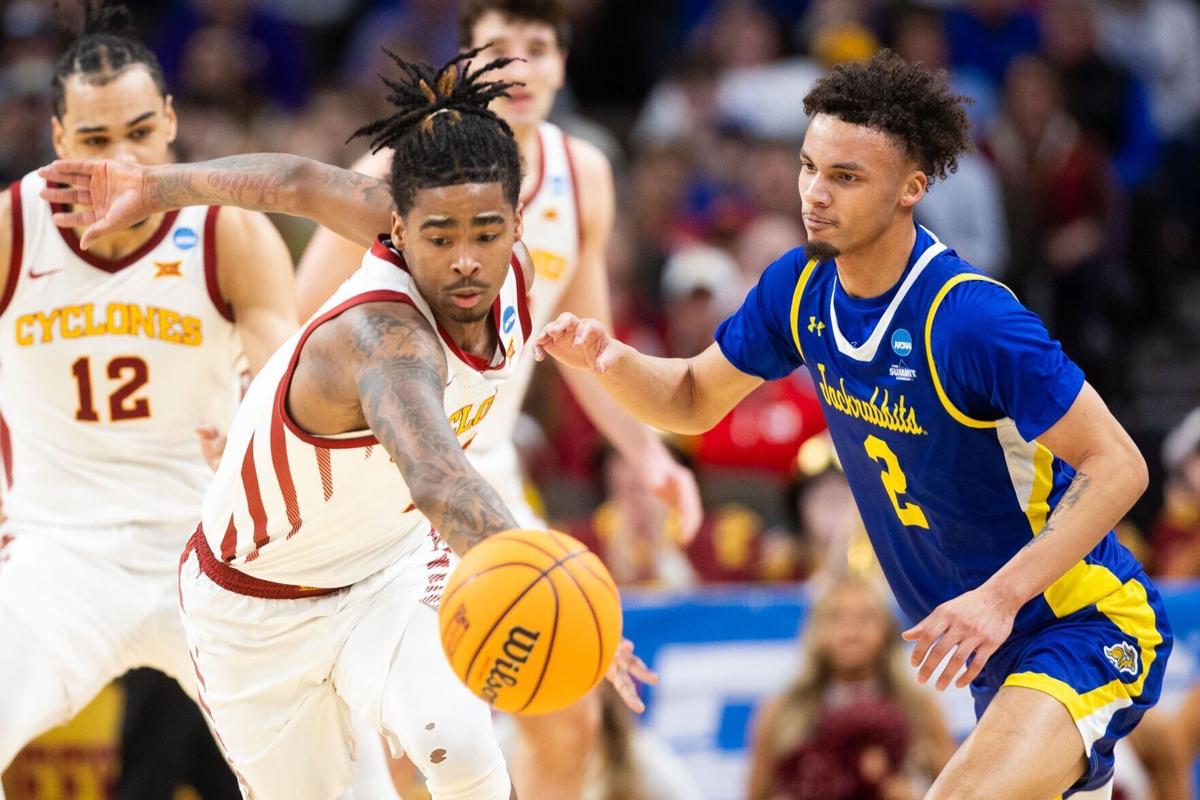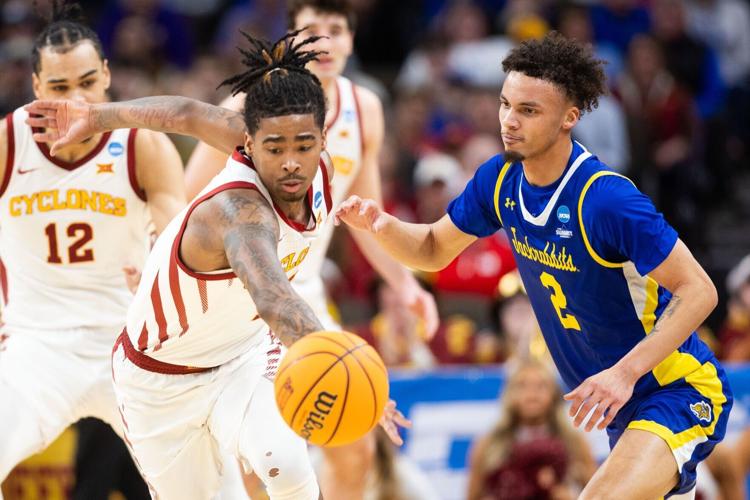COLUMBIA, Mo. — Sixteen teams contain more than a few lessons to be learned.
Missouri men’s basketball is spending the Sweet 16 weekend on its collective, metaphorical couch, exactly where the Tigers have been for this weekend every March since 2009.
After 19 straight losses to close out the 2023-24 season, Mizzou feels a long way from the talent-laden programs battling their way into one of sports’ most iconic weekends. And yes, quite a bit separates MU from Duke, which has been to more Sweet 16s (nine) since Missouri’s last one than Mizzou has ever been to.
But there’s still something for the Tigers to take away from the teams that have made it to this point — less from the traditional powerhouses and more from the other teams that have grown in stature over the past few years.
There’s Iowa State, a No. 2 seed not far removed from a winless conference season of its own. There’s Clemson, which built an experienced, resilient roster. And there’s North Carolina State, the lowest remaining seed in the NCAA Tournament, which is working through a unique style of playmaker.
People are also reading…
Each has a lesson Mizzou could learn, and roster-building is at the core of each.
Iowa State: Right combination of stars, style
The Cyclones won two games in the 2020-21 season, one of college basketball’s stranger seasons because of the COVID-19 pandemic, and went on an 0-18 run against Big 12 opponents.
Three seasons later, they’re one of the nation’s best teams.
What changed? Start with defense.
Iowa State has the country’s best defense, according to KenPom’s adjusted efficiency rankings. It’s not just analytics that love the Cyclones either: In defensive counting stats, they’re the best among major programs in steals per game and fourth in points allowed.
Key to that success are guards Keshon Gilbert and Tamin Lipsey. Both have produced remarkably similar, well-rounded stat lines this season. They each score roughly 13 points per game, grab four or five rebounds, assist four or five teammates’ baskets, and come away with about two steals each game.
That’s valuable — and certainly makes the system go. And where did Iowa State find those twin engines?
Gilbert, who won a title with Vashon in his high school days, transferred from UNLV, where he was flashing a similar statistical style. Lipsey is a homegrown talent who broke out as a freshman and continued his rise this season.
The lesson: Identifying personnel who can combine to create a dominant style pays off.

Clemson center PJ Hall pulls down a rebound while being defended by North Carolina forward James Okonkwo during the second half of Tuesday's game in Chapel Hill, N.C.Â
Clemson: Experience matters
It’s not just that they’re the Tigers too. There are more parallels.
The 2021-22 season saw Clemson finish 10th in the Atlantic Coast Conference, going 8-12 in league play. Out the door went point guard Nick Honor, who transferred to Mizzou. And in came a big four-member recruiting class.
Now, the orange-and-purple Tigers are relying on experience and development to hit their stride.
There’s PJ Hall, who’s spent his entire career at Clemson and evolved into a tournament team’s leading scorer. And there’s Joseph Girard III, who transferred from Syracuse, and is shooting 41% from 3-point range and an eye-popping 95% from the free-throw line.
Clemson’s offense and defense are fitting of an NCAA Tournament-caliber team, statistically, but don’t leap off the page. What’s interesting are some of the Tigers’ roster-building metrics.
According to KenPom, Clemson is 26th in the country in Division I experience and fifth among Sweet 16 teams in continuity. Being 20th in average height doesn’t hurt either.
The lesson: Getting a program to a point where developed recruits and timely portal adds can mesh through experience is a successful stage.

North Carolina State's DJ Burns, Jr. (30) and Ben Middlebrooks celebrate after defeating Oakland in the second round of the NCAA Tournament on March 23, 2024, in Pittsburgh.Â
NC State: Meshing playmakers, role playersThe fun in watching NC State has been watching forward DJ Burns, the smooth-operating post player who has captured hearts during the 11th-seeded Wolfpack’s run to the second weekend of the tournament.
He’s not just a novelty, though — he’s the heartbeat of NC State’s offense.
When Burns was on the floor against ACC opponents, he took 31.2% of the Wolfpack’s shots, according to KenPom, the third-most of anyone in the conference. His assist rate of nearly 25% also means he helps NC State keep the ball moving, too.
He’s the focal point but not the only contributor. The Wolfpack has benefited from the addition of role players like former Missouri forward Mo Diarra who provide some niche help in smaller capacities.
Diarra has started roughly half of NC State’s games and averages 21.5 minutes per game. He’s attempting about twice as many shots as he did with the Tigers and making them at a slightly better clip. His biggest leap forward has been as a rebounder.
Diarra is grabbing 31% of available defensive rebounds when he’s on the floor this year, the third-best rate in the nation.
He plays well in tandem with Burns. When that duo is on the floor, NC State comes away with 74.6% of defensive rebounds, which falls into the 86th percentile according to CBB Analytics,
The lesson: Playmakers can be unique, but there’s value in defined role players.
Other lessons
A couple of other trends stand out about these three Sweet 16 teams:
All are at least close to the so-called a visualized analytics profile that captures which teams play well at varied tempos. NC State isn’t quite on par with Clemson and Iowa State in that regard, but all three programs have the ability to adjust style to their opponents, which is helpful in a tournament setting.
The assist-to-turnover ratio — a key stat of interest to MU coach Dennis Gates — of all three teams is solidly positive. Iowa State ranks 31st in the nation with a ratio of 1.52 assists to every turnover, Clemson is 39th with a 1.45 and NC State is 62nd at 1.37.
That’s a significant jump from Mizzou, which finished with an assist-to-turnover ratio of just 1.05, good for 215th.
Mizzou football coach Eli Drinkwitz addresses the media on Wednesday, March 20, 2024, after spring practice wrapped up. (Video by Mizzou Network, used with permission of Mizzou Athletics)

















